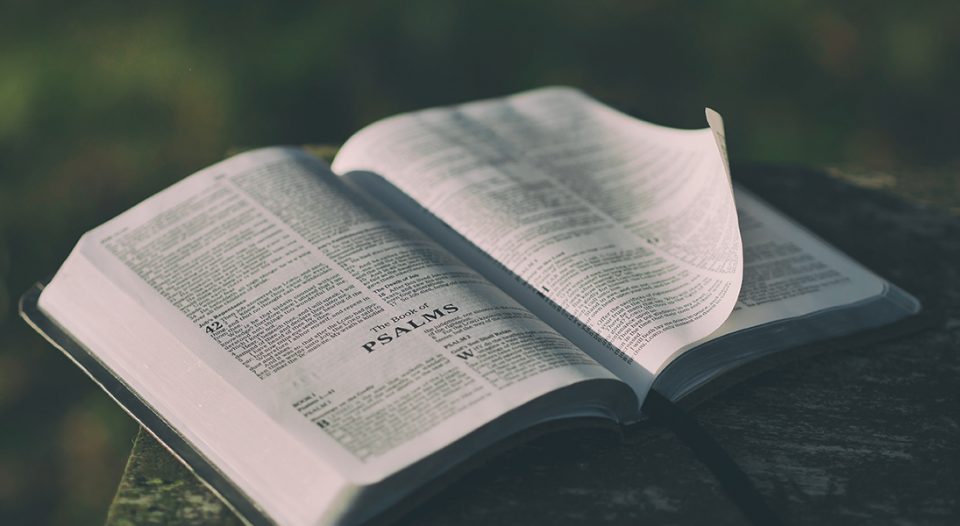Growing up in the ELCA, I remember being told more than once that the Psalms were powerful because they presented the entire range of human emotion. This advice was given with more fervor as I entered adolescence, no doubt because adults knew that that time would offer so many new emotions to process. I think the teachers who told this to me and my Sunday school classmates were trying to help us understand that we needn’t hide our complex feelings from God—indeed, that we could not. It was subtle advice pointing to a stalwart help.
But I didn’t quite grasp the richness of the relationship with the Psalms that these adults were inviting us to share. I was skeptical; sure, the Psalms displayed anger, cruelty and depression, along with joy and relief, but I knew they couldn’t possibly contain all the different emotions I felt. Did they express mortification or ennui or schadenfreude? Could the entirety of my complex self really have been captured by a writer thousands of years in the past?
Perhaps I should have wondered if the psalmist covered hubris. I can forgive my teenage self for my ego, but one of the nastiest tricks our brains play is to convince us we are the first, perhaps even the only, people to experience a certain emotion. This makes us feel special, of course. But it also separates us from the commonality of created humanity, God’s beloved people. We are unique, but not in every way.
I recently thought about the Psalms under strange circumstances. I’d taken a stack of plastics to a recycling event near my home. The day was hot, and this was one of the first events I’d attended since the pandemic began to wane. I wasn’t used to being near so many people gathered, and I got the sense that others there were equally uneasy, which only increased my own anxiety. When I finally presented my bags of plastic to be sorted, I learned that many of the containers I’d brought couldn’t be accepted at all—I could have recycled most of them at home. Slightly sunburned, I plodded back to my car with most of my plastics.
So many emotions were coursing through me! Anger, both justified and unjustified. Confusion. Wounded pride as I chafed under the mild condescension of the recycling staff. Bewilderment, embarrassment and shame.
I catalogued them all and felt helpless. My anger had no object: I shouldn’t be mad at the organizers for following their own clearly stated guidelines. I was bemused at my own behavior but knew I hadn’t done anything deliberately wrong. “Where’s the Psalm for this situation?” I wondered.
“Where’s the Psalm for this situation?” I wondered.
Yes. I ended up blaming a book in the Bible for my very 21st-century mess.
Of course, there is a psalm—more than one. But Psalm 51:1-3 especially spoke to me:
Have mercy on me, O God,
according to your steadfast love;
according to your abundant mercy
blot out my transgressions.
Wash me thoroughly from my iniquity,
and cleanse me from my sin.
For I know my transgressions,
and my sin is ever before me.
This is a psalm David is said to have written after committing adultery—quite different from getting steamed up over a recycling event, I know. Yet it seemed so apt, especially the idea that my sin was always before me. Three weeks later, I was still searching for someone or something to blame for my embarrassment.
Thankfully, Psalm 51 doesn’t provide a series of steps I would need to check off to end my shame. Instead, in verses 7-8, the psalmist rightly turns the work over to God:
Purge me with hyssop, and I shall be clean;
wash me, and I shall be whiter than snow.
Let me hear joy and gladness;
let the bones that you have crushed rejoice.
I realized the best argument against my belief that my sins and emotions were unique: that God’s broad, encompassing love sets nothing aside, or outside of God’s grace. Our sins are before us—my recycling bin is still in my kitchen, reminding me—but our God removes them all, which we cannot.
I can’t say I enjoyed testing out my Sunday school teachers’ thesis that the Psalms present anything a person might feel. My test was small and silly compared to larger sins and emotions, but I’m still grateful for the proof. I’ll be quicker to turn to the Psalms in moments of crisis, even when my emotions are small and silly too. When they’re large and overpowering, painful and shaming, I know one place where I can find God, just as I was advised many years ago.





